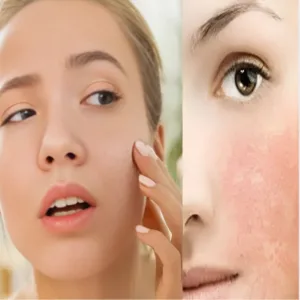Knowledge sharing
Organic Skincare Risks Revealed – What the Labels Aren’t Telling You
Discover the hidden Organic Skincare Risks that may affect your skin. Learn how to choose safer, more effective natural products.
Understanding these risks is essential if you want to make informed decisions about your skincare routine — and to avoid unexpected reactions, sensitivities, or long-term skin issues.
1. What Does “Organic Skincare” Really Mean?
Before we dive into the Organic Skincare Risks, it’s important to define what organic skincare actually is. Organic skincare refers to products made with ingredients that are grown without the use of synthetic pesticides, herbicides, or genetically modified organisms. These products often contain plant-based extracts, essential oils, and other natural ingredients.
However, “organic” is not always clearly regulated across the globe. Different countries have different standards, and some brands may use the term loosely. As a result, consumers can be misled into thinking that “organic” automatically equals “safe” — which is not always the case.
For example, some organic skincare risks for sensitive skin during Michigan winters become more evident due to extreme weather conditions and lack of moisture, emphasizing the need for careful product selection.

2. The Hidden Risks of Natural Ingredients
One of the most overlooked Organic Skincare Risks is the potential for allergic reactions. Just because something is natural doesn’t mean it’s non-irritating. In fact, many organic ingredients can cause sensitivities or allergic responses, especially in those with reactive skin.
Common irritants include:
Essential oils (like lavender, citrus, or peppermint)
Plant extracts (such as chamomile or tea tree oil)
Natural fragrances
These substances can lead to redness, itching, burning, or even long-term inflammation. If you’re switching to organic products for the first time, it’s essential to do a patch test before applying them to your face or body.
This is particularly important when considering hidden dangers of organic skincare for Detroit residents with allergies, where urban pollution combined with allergens may heighten reactions.

3. Lack of Preservatives and Bacterial Contamination
Organic Skincare Risks are often overlooked. While these products seem safer and natural, they may cause irritation or allergies if not used properly. Learn more!
Contaminated products can lead to:
Skin infections
Acne flare-ups
Worsening of pre-existing skin conditions
Choosing organic products with natural preservatives (like vitamin E or certain plant extracts) and checking expiration dates can help reduce this risk, but it doesn’t eliminate it completely.
In areas like Upper Peninsula Michigan, where temperatures can fluctuate drastically, organic skincare ingredient risks may be amplified by improper storage or transportation conditions.
4. Unstable Formulations and Shorter Shelf Life
Another major Organic Skincare Risk is product instability. Organic skincare often lacks the chemical stabilizers found in synthetic products, making them more prone to separating, degrading, or losing effectiveness over time.
This means:
Active ingredients may lose potency quickly
Products might change color or smell
You might unknowingly apply a product that’s no longer effective or safe
To combat this, store organic products in cool, dark places and use them within the recommended timeframe.
5. Misconceptions About “Safe for All Skin Types”
Some brands claim their organic products are gentle enough for all skin types — but this can be misleading. Many people believe that going organic will automatically solve all their skin problems. Unfortunately, Organic Skincare Risks still exist for individuals with acne-prone, rosacea-prone, or sensitive skin.
For example, heavy plant oils can clog pores and worsen breakouts, while natural acids can be too harsh for damaged skin. Just like with synthetic products, not every organic ingredient works for every skin type.
This is especially true for organic skincare risks in Ann Arbor for people with eczema, where seasonal changes can make sensitive skin even more reactive to botanical compounds.
6. Inconsistent Ingredient Sourcing

Because organic ingredients come from natural sources, their quality and effectiveness can vary based on:
Where and how they were grown
The season they were harvested
The extraction methods used
This inconsistency can lead to unpredictable results, which is one of the more subtle but important Organic Skincare Risks. Unlike synthetic products that are standardized, the organic versions may not always perform the same way.
7. Switching Too Quickly Can Shock Your Skin
One of the most common Organic Skincare Risks arises when people switch abruptly from synthetic to organic products. This sudden change can disrupt the skin’s barrier function and cause:
Dryness
Breakouts
Irritation

